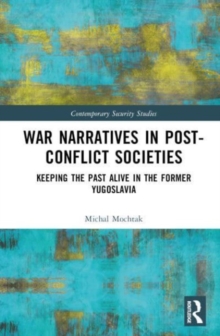
Women, Peace and Security : Translating Policy into Practice PDF
Edited by Funmi (Kings College, London, UK) Olonisakin, Karen Barnes, Eka Ikpe
Part of the Contemporary Security Studies series
Description
This book provides a critical assessment of the impact of UN Resolution 1325 by examining the effect of peacebuilding missions on increasing gender equality within conflict-affected countries. UN Resolution 1325 was adopted in October 2000, and was the first time that the security concerns of women in situations of armed conflict and their role in peacebuilding was placed on the agenda of the UN Security Council.
It was an important step forward in terms of bringing women’s rights and gender equality to bear in the UN’s peace and security agenda.
More than a decade after the adoption of this Resolution, its practical reality is yet to be substantially felt on the ground in the very societies and regions where women remain disproportionately affected by armed conflict and grossly under-represented in peace processes.
This realization, in part, led to the adoption in 2008 and 2009 of three other Security Council Resolutions, on sexual violence in conflict, violence against women, and for the development of indicators to measure progress in addressing women, peace and security issues. The book draws together the findings from eight countries and four regional contexts to provide guidance on how the impact of Resolution 1325 can be measured, and how peacekeeping operations could improve their capacity to effectively engender security. This book will be of much interest to students of peacebuilding, gender studies, the United Nations, international security and IR in general.
Information
-
Download - Immediately Available
- Format:PDF
- Pages:272 pages, 6 Tables, black and white
- Publisher:Taylor & Francis Ltd
- Publication Date:01/11/2010
- Category:
- ISBN:9781136868085
Information
-
Download - Immediately Available
- Format:PDF
- Pages:272 pages, 6 Tables, black and white
- Publisher:Taylor & Francis Ltd
- Publication Date:01/11/2010
- Category:
- ISBN:9781136868085










